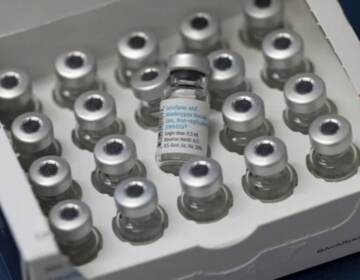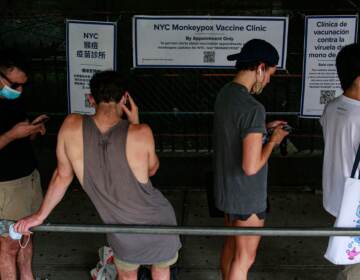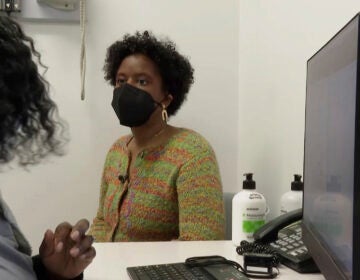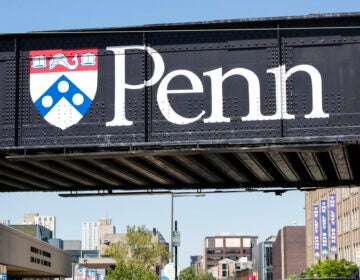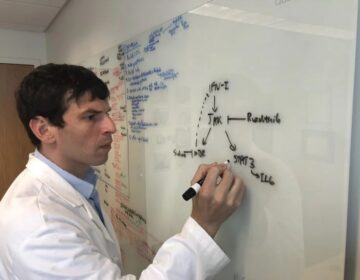‘I’m furious’: LGBTQ leaders and residents angered over Philly’s monkeypox vaccine shortage
Philadelphians and LGBTQ advocates have grown frustrated with the limited availability of vaccines and small scope of testing in the city.
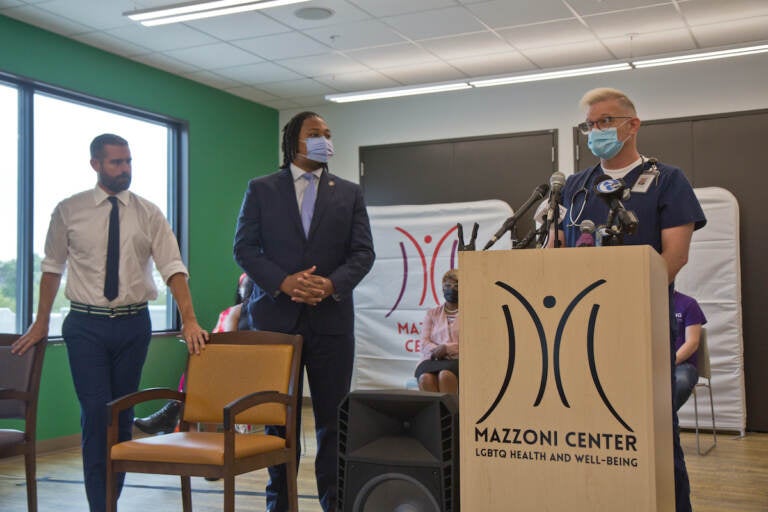
During a press conference Friday at the Mazzoni Center, Pa. State Representatives Brian Sims (left), and Malcolm Kenyatta (center), joined Mazzoni Center medical assistant Steven Roberston, who said the clinic's staff has not received enough vaccines to meet their patients' needs. (Kimberly Paynter/WHYY)
Ed Coffin estimates that he spent more than 10 hours this week on the phone with medical providers and public health officials, searching social media and online, trying to find an appointment for a monkeypox vaccine in Philadelphia, where he lives.
Often, he was met with automated messages, conflicting advice on how to get an appointment, or told that nothing was available.
“Most people are probably not as invested in this as I am,” said Coffin, a registered dietician. “And people generally don’t have a lot of time or knowledge to be able to figure these things out. I would presume a lot of high-risk people, if they’ve tried and this is what they’ve gotten so far, probably just give up.”
Coffin, 36, said he falls into a group of people who are considered high risk for contracting monkeypox, which has so far disproportionately affected men who have sex with men in the current global outbreak.
He joins other Philadelphians and LGBTQ advocates who’ve grown frustrated with the limited availability of vaccines and small scope of testing. They’re calling on city, state, and federal leaders to offer a stronger response to the local monkeypox outbreak.
“We need to test, treat everybody, vaccinate everybody,” said Jazmyn Henderson, a member of ACT UP Philadelphia. “And if we don’t do something about it, that means we’ve learned nothing from the lessons of Covid that just happened, nor the last 40 years of the HIV crisis.”
Henderson voiced concerns alongside state representatives Malcolm Kenyatta and Brian Sims during a press conference Friday at the Mazzoni Center, which provides LGBTQ-focused health care for patients in Philadelphia.
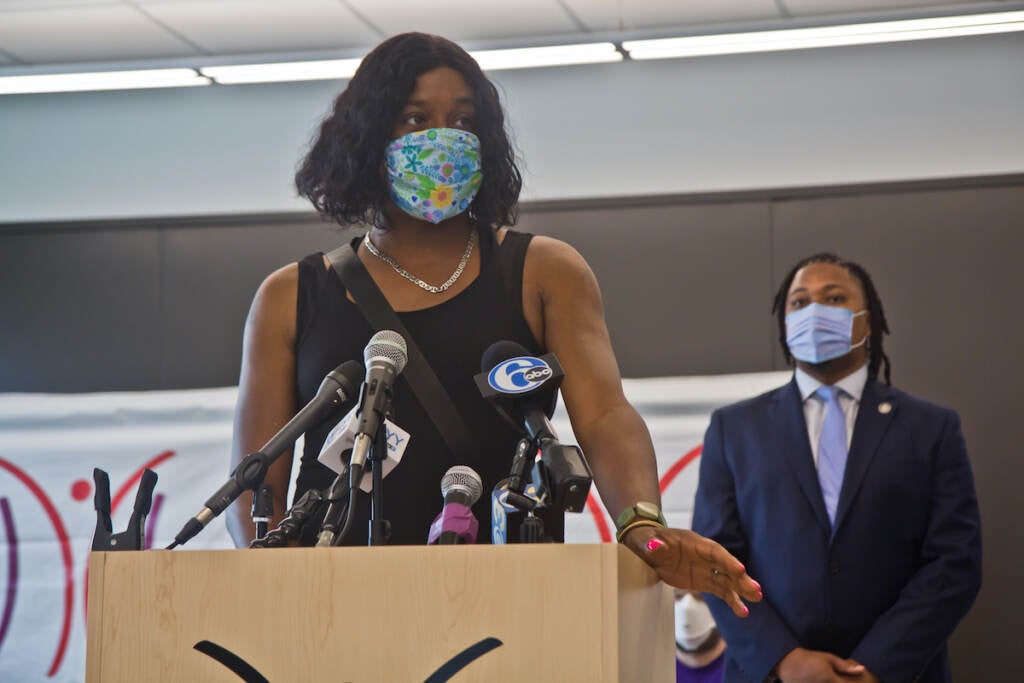
Philadelphia has identified 67 cases of monkeypox as of Friday, according to city officials.
Health experts say vaccines can help prevent new cases, or at least reduce symptoms in someone who becomes infected.
The city has received more than 2,000 doses so far, some of which are being distributed to a small group of local healthcare providers that have been tasked with identifying high-risk patients.
The Philadelphia Department of Public Health defines “high risk” as adults 18 and over who are bisexual, transgender, non-binary, and other men who have sex with men, transgender, or non-binary persons.
People who are at the highest risk of getting monkeypox are those who have been exposed. As more vaccine doses are received, the Health Department will be able to vaccinate more eligible people. For more information: https://t.co/whBcr2htRy. (2/2)
— Philadelphia Public Health (@PHLPublicHealth) July 28, 2022
Residents must also have had multiple or anonymous sex partners in the last 14 days, or believe that they’ve been exposed to a sexually transmitted disease or monkeypox in the past 14 days to be considered for a vaccine.
But Democratic State Rep. Kenyatta, who identifies as gay, said people are struggling to book vaccine appointments, even when they fit this criteria.
“Doses are not reaching the people who are most vulnerable, who need it the most,” Kenyatta said Friday. “I’m furious at what the response has been so far.”
It’s not just residents finding it hard to get their hands on doses.
Steven Robertson is the medical assistant supervisor at the Mazzoni Center. He said health providers there are seeing three to five patients a day with symptoms of monkeypox.
“We’re in gowns, we’re in gloves, we’re in KN-95 masks, we’re in face shields,” he said, “but we don’t have the vaccinations that everybody else is getting that we need in order to protect ourselves from this virus.”
A city health department spokesperson said in an email said they hope to grow testing operations, as well as expand access to vaccine doses once more federal shipments come in. They expect to receive 6,020 more doses, divided among three deliveries, between now and the fall.
But while supply remains limited, the city is prioritizing vaccines to people who’ve been exposed to a confirmed case of monkeypox.
For Coffin, his persistence paid off. He received one dose of a monkeypox vaccine late Thursday afternoon at the Mazzoni Center, where he is an existing patient. But he said too many others remain without protection.
Information about monkeypox symptoms, treatment, and vaccines can be found at the health department’s website.
WHYY is your source for fact-based, in-depth journalism and information. As a nonprofit organization, we rely on financial support from readers like you. Please give today.


